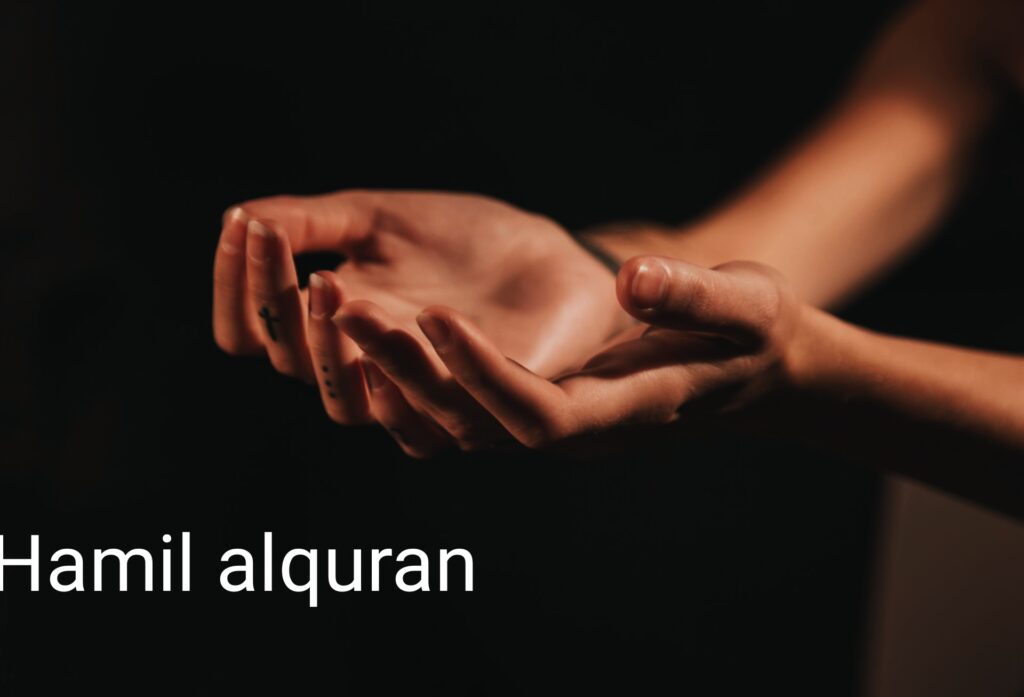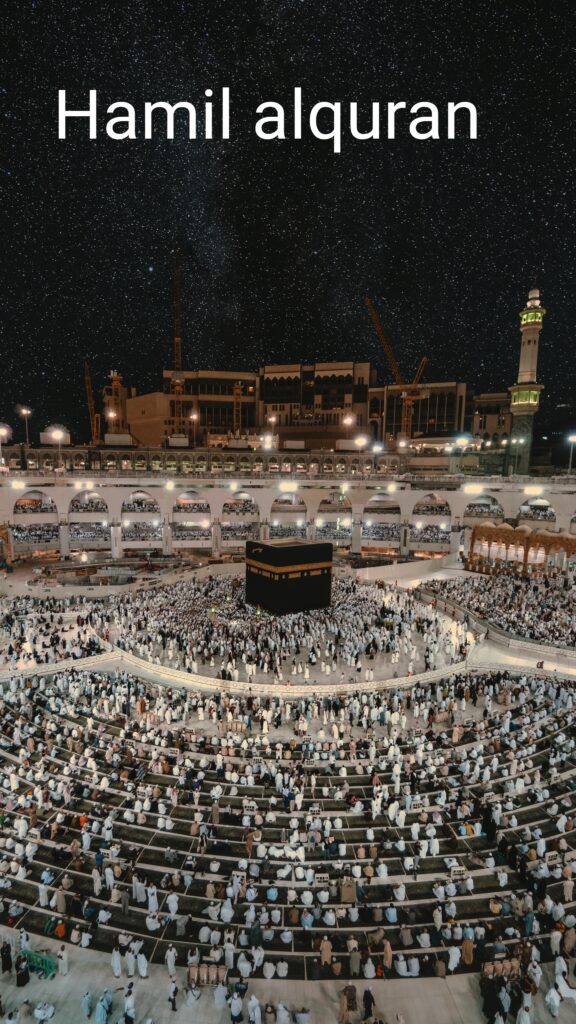The Five Pillars of Islam: The Foundation of the Islamic Faith
Islam revolves around five pillars, which are the basis of faith and the foundation of the creed, as what is meant by the pillar is part of the thing.
In other words, the five pillars of Islam are the pillars of religion, and faith does not count except with them.
Moreover, the Islamic pillars are represented by the testimony of faith, establishing prayer, giving zakat (charity), fasting during Ramadan, and then Hajj (pilgrimage) which is the greatest pillar of faith.
It is worth noting that these pillars have certain conditions that must be fulfilled. In the following paragraphs, we will learn about them in detail.

The Shahada: The Declaration of Faith in Islam
Shahada is the first pillar of Islam, and it includes submission and acceptance of the Oneness of Allah Almighty and that Muhammad is the Messenger of Allah.
The Shahada is the Islamic declaration of faith, and it is the first of Islam’s five pillars. It is a statement of belief in the oneness of Allah and the prophethood of Muhammad.
And it is considered the most fundamental expression of the Islamic faith. The Shahada is recited by Muslims around the world, and it is the declaration that marks a person’s formal conversion to Islam.
The Shahada is comprised of two parts:
1- “La ilaha illa Allah” – There is no god but Allah
This affirms the belief in the oneness of Allah, who is the only God worthy of worship and is without partners.
2- “Muhammad rasul Allah” – Muhammad is the messenger of Allah
This affirms the belief that Muhammad is the last and final prophet sent by Allah to guide humanity.
Together, the Shahada declares the belief that there is only one Allah and that Muhammad is His final messenger.
The recitation of the Shahada is considered a vital part of a Muslim’s daily life, and it is recited during prayer, before eating.
And before undertaking any important task. It is also the first phrase whispered in the ear of a newborn baby, as a sign of welcome into the Muslim community.

Salah: The Ritual Prayers of Islam
The second practical pillar of Islam is the establishment of Salah The Islamic prayer. After declaring faith in Allah and the Prophet Muhammad, a Muslim must observe the five daily prayers as prescribed by Allah.
The purpose of establishing prayer is to instill in the believer the understanding that Allah has ordained five daily prayers, each with its specific time and format.
Establishing prayer is one of the most important practical pillars of Islam, which Allah has called upon His servants to abide by and perform in all its requirements.
However, prayer is not just about performing the physical act of prayer; it is also about embodying the moral values that prayer encourages.
Prayer calls for order and the observance of good morals by standing in organized and neat rows. Prayer also calls for cleanliness and purification from impurities and dirt, as Muslims must wear clean clothes and perform ablution before each prayer.
The ablution includes washing the main visible body parts, such as the face, hands, and feet, as well as wiping the head and performing other recommended acts of ablution such as rinsing the mouth and nose.
And washing the ears. If a Muslim establishes prayer but does not embody its ethical values, their prayer will not be complete.

The prayer is also not obligatory upon a child who has not yet reached the age of maturity, as mentioned in a hadith narrated by the Prophet Muhammad (peace be upon him).
However, it is the responsibility of the guardian of the child to command them to perform the prayer when they reach seven years old and to discipline them if they do not perform it when they reach ten years old, as stated in another hadith. This is seen by the majority of scholars as recommended, rather than obligatory.
The prayer is also not obligatory upon an insane person, but the matter is disputed when it comes to someone whose mind has been affected by something like fainting, drug use, or alcohol consumption.
Some scholars consider it obligatory to make up the missed prayers in these situations, while others differentiate between what was done intentionally and what was not, and whether it was done for a legitimate reason or not.
Zakat: The Obligatory Charity of Islam
Zakat is the third Islamic pillar, and those who want to enter Islam must acknowledge its obligation. It is a fixed right that must be taken out of the rich people’s money and given to those who deserve it.
Scholars have defined zakat as a mandatory right in the money under certain conditions at a specific time. The word “zakat” refers to the portion extracted from the money that the zakat payer pays.
Those who want to enter Islam must know that zakat is an obligation imposed by Allah on the money that is utilized and grows. Examples of such money include various kinds of livestock, such as cattle, and sheep.

Sawm The Fasting of Ramadan
The fasting of the month of Ramadan is the obligatory fasting for Muslims, and it was mandated in the second year after the Hijra. Verses from the Quran were revealed in it, indicating its obligation on Muslims, and that it was obligatory on those who came before them in previous religions.
Its rulings and timings were legislated in the verses of fasting, and its details and timings were explained in the prophetic narrations because the prophetic narrations are an explanation of the Quran.

Hajj: The Annual Pilgrimage to Mecca
The Hajj is the annual pilgrimage of Muslims to the holy city of Mecca in Saudi Arabia. It is also the fifth pillar of Islam, and able-bodied Muslims must perform it once in their lifetime.
The Hajj involves rituals and ceremonies that begin on the eighth day of Dhu al-Hijjah, the twelfth month of the Islamic calendar.
The history of Hajj goes back to the story of Prophet Ibrahim, his wife Hagar, and his son Ismail, who is the ancestor of Prophet Muhammad.
Islamic sources say that Ibrahim received an order from Allah to leave his wife, Hagar, and his son Ismail in a barren place, now known as Makkah, with few provisions.
With the water running out, Hagar ran seven times between the hills of Safa and Marwa, searching for water for herself and her child. According to the narrative, a miraculous spring of water erupted, saving both of them from death.
Some of the rituals of Hajj traced back to that story, as the Sa’i between Safa and Marwa, seven times is one of the rituals performed in commemoration of Hagar. Years later, Ibrahim received an order to build the Kaaba in that place.

Conclusion
In conclusion, the Islamic religion has pillars that the religion cannot be achieved without, which are known as the five pillars of Islam. you may read this article to learn more about Islam
Where these pillars are represented in pronouncing the two testimonies, establishing prayer, paying zakat, fasting Ramadan, and pilgrimage to the House for those who can find a way.
In addition to that, for each of the five pillars of Islam, the validity of conditions must be met by a Muslim first to achieve their validity. Source



